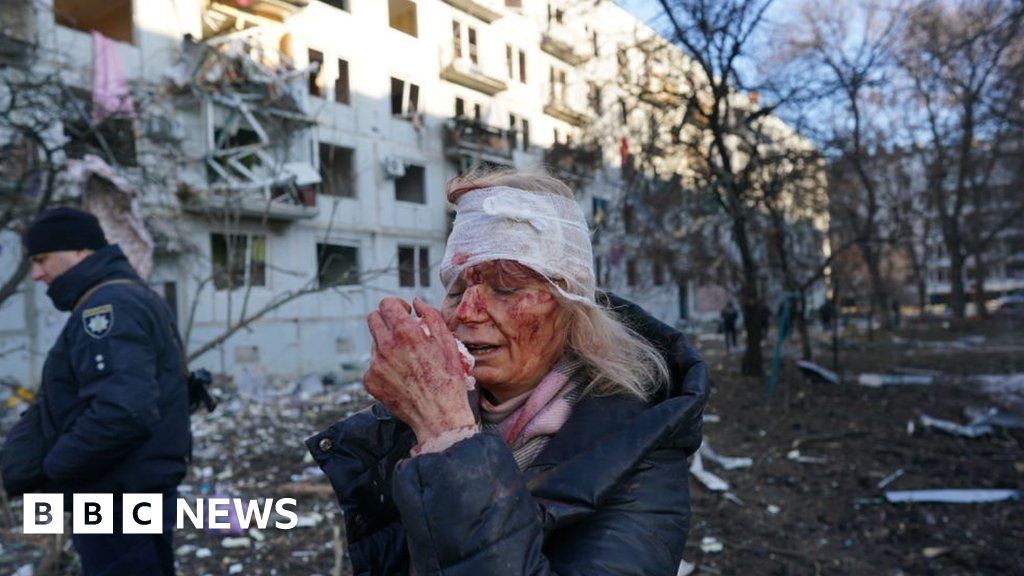
"Intelligence is our first line of defense against terrorism, and we must improve the collection capabilities and analysis of intelligence to protect the security of the United States and its allies."
Intelligence Snippet of the Week:
Surveillance is a key aspect of intelligence analysis, and it involves the systematic and continuous observation of individuals, groups, or activities in order to collect and analyze information. Surveillance can be conducted using a variety of methods, including human intelligence (HUMINT), signals intelligence (SIGINT), and imagery intelligence (IMINT), among others.
Intelligence agencies may conduct surveillance for a variety of reasons, including gathering information on potential threats, monitoring the activities of foreign governments or organizations, or tracking the movements of specific individuals of interest.
Intelligence analysts play a critical role in surveillance operations. They are responsible for analyzing and interpreting the information gathered through surveillance activities. This includes identifying patterns or trends that may indicate a potential threat, assessing the credibility and reliability of sources, and determining the relevance of the information to broader intelligence objectives.
Weekend Insights
As the conflict in Ukraine enters its second year, several key trends have emerged. Russia has failed to achieve its initial goal of a rapid takeover of Ukraine. Ukraine has, thus far, overachieved in its resistance against the Russian invasion. Western support for Ukraine has remained strong throughout the conflict. However, there is no guarantee that the conflict will remain on the same trajectory as it enters its second year.
China has presented a 12-point proposal aimed at resolving the ongoing conflict between Russia and Ukraine. The plan calls for ceasefires, peace talks, protection for prisoners of war and civilians, the safety of nuclear power plants, and facilitating grain exports. China emphasizes the importance of respecting the sovereignty of all countries and calls for an end to sanctions not endorsed by the UN Security Council. The U.S. and European officials have dismissed the plan as being biased towards Russia. U.S. Secretary of State Blinken has expressed skepticism about China's neutrality, accusing Beijing of providing non-lethal assistance that aids in Russia's war efforts.
The recent joint tabletop exercise conducted by the U.S. and South Korea underscores the growing concern over North Korea's nuclear and missile programs. That program continues to pose a significant threat to the security and stability of the region. The exercise aimed at preparing for hypothetical scenarios of a North Korean nuclear attack. It also discussed various options for demonstrating the alliance's strong response capabilities and resolve.
Headlines

Nearly a year since Russian forces rolled into Ukraine, there are no real signs of a way out of the conflict. Neither side appears primed for an outright military victory, and progress at the negotiating table seems just as unlikely.
Neither side has released figures lately, but analysts estimate that about 200,000 Russian troops have been killed or wounded in the war so far. By comparison, Ukraine has seen some 100,000 killed or wounded in action, and 30,000 civilian deaths.
Analyst Comment:
Overall, the situation in Ukraine remains volatile. The conflict between Russia and the West shows no signs of resolution. Russia's goals for the war continue to be a cause for concern. The international community remains divided on how best to respond.
Despite early gains by Russia in capturing the city of Mariupol, Ukrainian resistance has proven stronger than anticipated. Since a counteroffensive last fall, neither side has been able to make substantive advances. Russia has resorted to using missiles and drones to target Ukraine's cities and infrastructure. At the same time, Ukraine plans to mount a counteroffensive in the coming weeks.
A negotiated settlement is unlikely, as Putin cannot afford to be seen as backing out of a fight he started. Ukrainians reject any territorial concessions to Russia. A total military victory for either side also seems unlikely as Ukraine may not have the ability to eliminate the Russian military's capacity to pose a threat. Russia is unlikely to back down from the fight.

U.S. intelligence suggests China is considering providing arms and ammunition to Russia. Involvement in the Kremlin’s war effort would be a “serious problem,” Secretary of State Antony Blinken said.
Blinken said the United States long has been concerned that China would provide weapons to Russia. He pointed to Chinese leader Xi Jinping’s promise to Russian President Vladimir Putin of a partnership with “no limits” when they met just weeks before Putin sent his troops into Ukraine on Feb. 24, 2022. Since then, ties between the two countries have only grown stronger.
Analyst Comment:
China has released a 12-point position paper in response to the Russia-Ukraine war urging an immediate ceasefire and for talks to commence between the two parties. The paper calls for the protection of nuclear power plants, opposition to the use of nuclear weapons, and an end to the “Cold War mentality” that Beijing believes is driven by U.S. global dominance and interference in other countries' affairs. The document appears to be an attempt to look as if China is neutral in the conflict and wants to promote stability in the region. Some analysts believe China's plan is heavy on rhetoric and thin on solutions.
China's proposal reiterates Russia's claims that Western countries are responsible for the conflict and criticizes sanctions imposed on Russia. The plan, however, does not specify any further details into what engagement means for countries involved and portrays a neutral picture without favoring either nation in the conflict.
Overall, it is evident that both China and the U.S. are vehemently opposing each other over their respective diplomatic stances in resolving the Ukrainian crisis despite some similarities shared between parts of their plans.
The U.S. and South Korea held discussions over ways they would respond to possible nuclear attacks by North Korea, which has been steadily building up its capability to deliver a credible atomic strike against the two.
Analyst Comment:
The discussions between the U.S. and South Korea focused on hypothetical scenarios of North Korea's use of nuclear weapons. The intent was to demonstrate the alliance's strong response capabilities to any nuclear attacks by North Korea. The tabletop exercise was the first of its kind since South Korean President Yoon Suk Yeol took office about a year ago and strengthened joint military exercises with the U.S. This had angered Pyongyang and led it to increase its provocations.
North Korea has continued to ratchet up tensions, testing an intercontinental ballistic missile designed to deliver a nuclear warhead to the U.S. mainland. North Korea fired two short-range missiles a few days later and tested four long-range cruise missiles. The cruise missiles flew in figure-8 patterns for a distance of about 2,000 kilometers, a range that could hit almost all of Japan. Cruise missiles are designed to fly low to the ground and avoid radar, and there are no United Nations resolutions that ban Pyongyang from testing them.
Last year, Kim’s regime test-fired more than 70 ballistic missiles, the most in his decade in power, and in defiance of UN resolutions that prohibit such launches. Kim has been modernizing his inventory of missiles over the past several years to make them easier to hide, quicker to deploy, and more difficult to shoot down. He is also poised to conduct his first test of a nuclear bomb since 2017. The U.S., Japan, and South Korea have pledged a stern coordinated response if North Korea goes ahead with the test.
Country Profile
Nigeria

Nigeria is a country located in West Africa with a population of over 200 million people, making it the most populous country in Africa and the seventh most populous country in the world. Nigeria is a federal presidential representative democratic republic with the President serving as both the head of state and head of government. The National Assembly is the legislative branch of government and consists of the Senate and the House of Representatives. Nigeria has a multi-party system, with the All Progressives Congress and the People's Democratic Party being the two main political parties.
Nigeria is often referred to as the "Giant of Africa" due to its large population and economy. It is the largest oil producer in Africa and has one of the fastest-growing economies in the world. However, Nigeria has struggled with high levels of poverty and unemployment. The economy is heavily dependent on oil exports, which make up a significant portion of the country's GDP. Nigeria has made efforts to diversify its economy - particularly in the agricultural and technology sectors.
The Nigerian Armed Forces consist of the Army, Navy, and Air Force. The President serves as the commander-in-chief. The military has played a significant role in Nigerian politics, with several coups and military regimes throughout the country's history. The military has been involved in peacekeeping missions and has also been deployed domestically to combat terrorism and insurgency in the northern part of the country. However, the military has been criticized for human rights abuses and corruption.
Advisory levels for Nigeria.
Nigeria is currently assessed as a high-risk destination for travel due to the prevalent crime, terrorism, civil unrest, kidnapping, and maritime crime. The embassy in Abuja can provide emergency assistance. Routine and emergency services are provided by the consulate in Lagos. However, due to the security conditions, the U.S. government has limited ability to provide emergency services to U.S. citizens in many areas of Nigeria.
Violent crime is common throughout the country, and kidnappings for ransom occur frequently. These crimes of opportunity often target dual national citizens who have returned to Nigeria for a visit, as well as U.S. citizens with perceived wealth. Terrorists continue to plot and carry out attacks, targeting locations where crowds gather. These groups are known to work with local gangs to expand their reach. Southern Nigeria experiences civil unrest, low-level armed militancy, and pervasive armed criminality, including kidnapping and maritime crime. Violence can flare up between farmers and herders in rural areas.
Travelers to Nigeria should carry proper identification, including a passport with a current Nigerian visa if needed. Use caution when walking or driving at night. Keep a low profile, and be extra vigilant when visiting banks or ATMs. Travellers should also monitor local media for breaking events and be prepared to adjust their plans. Avoid demonstrations and large political gatherings. Have a security plan and review those plans consistently.
Media Bias Alert
The initial invasion of Ukraine by Russian forces in 2022 was a significant event not only geopolitically but also in terms of media coverage. Views on how the conflict unfolded were vastly different between Western and Russian state media sources, often based on conflicting narrative frames, misreporting facts, and political bias. This week we will take a look at some of the reporting from these two vastly different perspectives to gain insight into the way events were perceived and shaped for public opinion.
TASS, or the Russian News Agency TASS, is a state-run news agency in Russia. As such, TASS is subject to the influence of the Russian government, which can lead to bias in its reporting. TASS has been accused of favoring the views of the Russian government and President Vladimir Putin. Particularly in its coverage of sensitive political issues such as the conflict in Ukraine and Russia's relations with the West.
Analysis of Bias:
This article from TASS is firmly biased in favor of Russia, as it portrays the country's actions in Ukraine as aimed at "protecting" the people of the Donetsk People's Republic (DPR) and Luhansk People's Republic (LPR). The article ignores the fact that Russia's intervention in Ukraine is a violation of international law.
The BBC (British Broadcasting Corporation) is a publicly funded news agency based in the United Kingdom. The BBC is expected to maintain impartiality and present news coverage in a fair and balanced manner. However, like all news agencies, the BBC can be subject to bias, conscious or unconscious, in its reporting. Some have criticized the BBC for being too closely aligned with the British government, while others have criticized the BBC for being too liberal or left-leaning in its reporting.
Analysis of Bias:
The article uses language that suggests a bias against Russia, referring to the invasion as "evil" and suggesting that Putin is responsible for the conflict. The article also emphasizes the humanitarian crisis caused by the conflict. It highlights the refugees and displaced persons, as well as the casualties suffered by Ukrainian civilians and soldiers. There is little mention of any potential reasons for Russia's actions or any context for the conflict.
Interesting Articles from the Weekend

Stay safe out there






